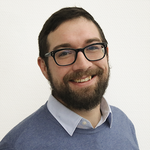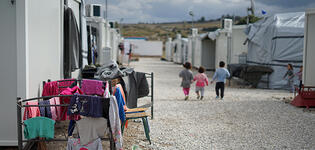Blog
Unaccompanied asylum-seeking youth in the UK – an interview with an expert
Inequalities in access to education
I recently spoke to Catherine Gladwell, who is the Director and Founder of Refugee Education UK (formerly Refugee Support Network) and one of the researchers who contributed to our special issue of the Journal of Ethnic and Migration Studies on involuntary migration, inequality, and integration. What she had to say offers a look behind the important — but often overlooked — stories behind our new research. Behind the journal article from Catherine Gladwell, there is the story of an NGO that starts at her kitchen table in Harlesden and eventually leads to a fact-finding mission in Afghanistan that exposes some of the least appealing aspects of UK migration policy.
The teenagers who just want to stay in school in the UK
Catherine Gladwell started her career as a teacher, but her students were unique. In 2004, she was hired to teach at a school in Oxfordshire which specializes in educating newly arrived migrants with no previous education. Beginning in 2004, she taught an adapted primary school curriculum to teenagers, many of whom were learning English as a second language and had been granted unaccompanied asylum-seeking children (UASC) status by the UK authorities.
Unless the issues that are affecting those young people’s lives around the edges of the classroom are addressed, then what you can achieve in the classroom is always going to be more limited
Her students were fleeing violence and upheaval that left them without homes in places like Afghanistan, formerly Kurdish areas of Iran, Eritrea, the Democratic Republic of the Congo, and Albania. Many of them had arrived in the UK alone and were living in state-provided housing with 5-6 other teenagers, where they would be visited once a day by a social worker. Many lived with uncertainty about whether they would be allowed to stay in the UK upon turning 18, when legal adulthood might strip them of their UASC status, just as it might allow them to buy a pack of cigarettes.
Catherine quickly realized that the barriers to education for these young people were not just in the classroom. Motivated by a quiet desire to help, she began what would become more than 15 years of diligent advocacy supporting asylum-seeking youth to achieve access to higher education.
‘Unless the issues that are affecting those young people’s lives around the edges of the classroom are addressed, then what you can achieve in the classroom is always going to be more limited and that’s what motivated that move into the support work role’.
Catherine’s journal article for our project ‘Addressing group-based inequalities’ is on the impacts of educational attainment on the integration and wellbeing of Afghan refugee youth in the UK.
‘They have the right to education [but] the higher they go up the more the disadvantages and barriers intersect and accumulate. At a global level only 3% of refugee young people are accessing tertiary education.’
A spare day and a kitchen table
One day, Catherine discovered that Harlesden, where she lived in London, had the third highest count of refugee or asylum-seeking youth in the city. The city itself accounts for 70% of the UK total. ‘There’s loads of refugee children in London, right’ Catherine tells me casually, as if I should not feel surprised by this.
Catherine describes finishing her masters’ degree programme as gaining a ‘spare day a week’. She immediately used this day to start the Refugee Support Network (RSN), now Refugee Education UK. The RSN began as, ‘Just my kitchen table and ten community volunteers that were willing to give up their time’. Catherine trained these volunteers to be educational mentors, who would pair with a single teenager and help them sort out a pathway to higher education. But quite often, a student would turn 18 and their application for legal status would be denied by the UK migration authorities. Deportation would be scheduled.
They were contacting us from Afghanistan saying I don’t know where to go, do you know anyone here that can help me
Catherine tells me, ‘They were contacting us from Afghanistan saying I don’t know where to go, do you know anyone here that can help me’. So, the RSN began a reporting project, a fact-finding mission to find out what happens to the teenagers who get deported to Afghanistan. Their mission conducted interviews with 55 teenagers who had been deported to Afghanistan, following them over the course of two years, and culminating in a high-impact report whose findings challenged UK migration policy.
This is important background for the findings of Catherine’s journal article. Higher educational attainment, she finds, is significantly and positively correlated with better outcomes in terms of integration and wellbeing for refugee youth, but the pathway to higher educational attainment can be a labyrinthine obstacle course for anyone with unresolved legal status.
For UASC teenagers, the somewhat arbitrary legal status which they are granted at age 18 determines how difficult it will be to get a university education. Refugee status is the most desirable because, alongside establishing their legal status, it makes students eligible for financial aid programmes. In 2015, only 17% of decisions granted refugee status to former UASC teens, but more recently the rate recorded has improved for subsequent years to 40%, 52%, 36%, and 49% from 2016–20. For the majority with unresolved status, attaining an education becomes extremely difficult — and rare — as students with unresolved status are not eligible for financial aid and must pay international student fees.
Even when students with unresolved status do graduate, overcoming these and other barriers, Catherine finds that their unresolved legal status essentially overrides the potential benefits their higher education would otherwise provide. There are two clear policy implications. First, a UASC designation should confer eligibility for student financial aid. Second, initiatives are needed to improve the ability of the system to clarify and resolve legal status more effectively.
The views expressed in this piece are those of the author(s), and do not necessarily reflect the views of the Institute or the United Nations University, nor the programme/project donors.
 Join the network
Join the network





